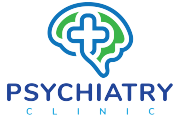How can PTSD be treated? Comprehensive Guide
Post-traumatic stress disorder (PTSD) is a mental health condition that can develop after experiencing or witnessing a traumatic event. It affects millions of people around the world and can cause severe distress, anxiety, and other symptoms that significantly impact daily life. Now the question arises How can PTSD be treated?
In this guide, we will discuss various treatment options available for PTSD and how they can help individuals manage their symptoms and improve their quality of life.
Read more to get further details.
How can PTSD be treated?

There is no one definitive treatment for PTSD as different individuals may respond differently to various therapies. However, the goal of all treatments is to help individuals cope with their symptoms and lead a fulfilling life. Some common treatment options include:
1. Psychotherapy or Talk Therapy
Psychotherapy or talk therapy involves talking with a mental health professional about your thoughts, feelings, and behaviors related to PTSD. This can help individuals process their traumatic experience, learn coping mechanisms, and manage their symptoms.
Some types of psychotherapy commonly used for PTSD treatment include:
Cognitive Behavioral Therapy (CBT):
This therapy helps individuals identify and change negative thought patterns and behaviors that contribute to their symptoms.
Eye Movement Desensitization and Reprocessing (EMDR):
This therapy involves recalling traumatic memories while engaging in specific eye movements or other bilateral stimulation to help individuals process and cope with their trauma.
Prolonged Exposure Therapy (PE):
This therapy helps individuals confront and process their traumatic memories through repeated exposure, which can help reduce the intensity of PTSD symptoms.
2. Medications
Medications may be prescribed to manage specific symptoms of PTSD, such as anxiety, depression, and sleep disturbances. Some commonly prescribed medications include:
Selective Serotonin Reuptake Inhibitors (SSRIs):
These antidepressants can help regulate mood and reduce symptoms of anxiety.
Benzodiazepines:
These anti-anxiety medications can help manage short-term symptoms but are not recommended for long-term use due to their potential for dependence and abuse.
Prazosin:
This medication is commonly used to treat nightmares associated with PTSD.
3. Alternative Therapies
Some individuals may find relief from symptoms through alternative therapies, such as yoga, meditation, acupuncture, or art therapy. These practices can help promote relaxation and reduce stress levels.
4. Support Groups
Connecting with others who have experienced similar trauma can provide a sense of understanding and validation, which can be therapeutic for individuals with PTSD. Support groups also offer a safe space to share experiences, coping strategies, and resources.
Conclusion
Many people have questions How can PTSD be treated? PTSD treatment is not a one-size-fits-all approach. It often involves a combination of different therapies and medications tailored to the individual’s specific needs and symptoms.
It’s essential to work with a mental health professional to find the most effective treatment plan for your unique situation. Remember, seeking help is a sign of strength, and recovery from PTSD is possible with the right support and treatment. So, if you or someone you know is struggling with PTSD, don’t hesitate to seek help and start the journey towards healing.
FAQs
Some of the frequently asked questions by people are mentioned below:
What is typically the best treatment for PTSD?
The best treatment for PTSD varies from person to person, but it often involves a combination of psychotherapy and medication. It’s essential to work with a mental health professional to find the most effective treatment plan for your unique situation.
Can you recover from PTSD?
Yes, it is possible to recover from PTSD with the right treatment and support. Recovery may look different for everyone, but it involves learning coping mechanisms and finding ways to manage symptoms effectively.
Can PTSD be fully treated?
There is no “cure” for PTSD, but it can be managed with proper treatment and support. With the right therapy and coping strategies, individuals can experience significant improvements in their symptoms and overall quality of life.

